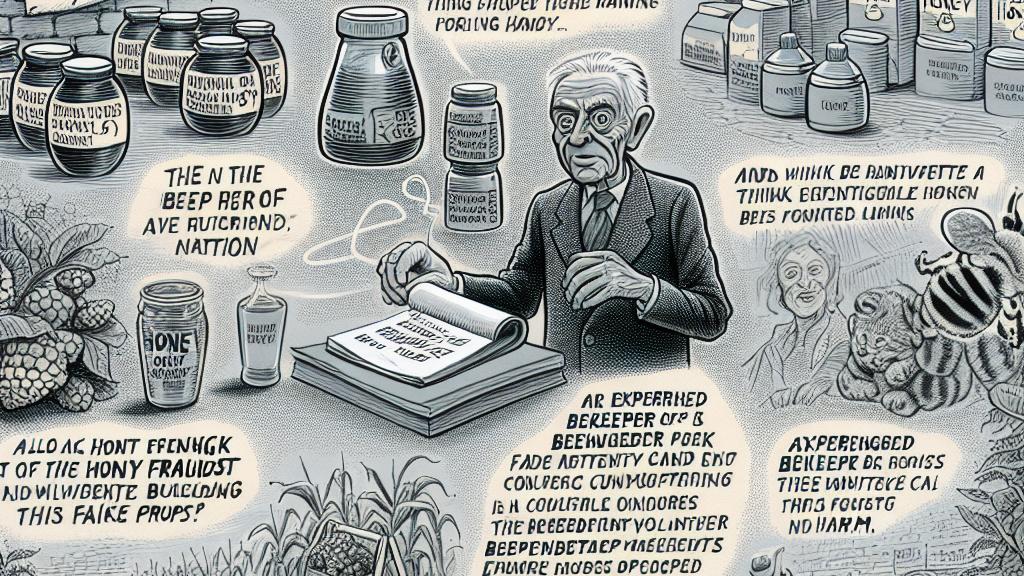Bee-Ware: The Sweet Scandal of Honey Fraud Unveiled!
Overview
- Honey fraud is a rising issue that jeopardizes consumer health and honest producers.
- The practice of adulteration involves mixing cheap sweeteners with genuine honey.
- Improved regulations and sophisticated testing techniques are essential for protecting consumers.

The Scope of Honey Fraud in the UK
In the United Kingdom, honey fraud has surfaced as a widespread issue, impacting the livelihoods of honest beekeepers and the health of consumers. Beekeepers like Lynne Ingram have voiced serious concerns regarding the infiltration of adulterated honey into the market, often composed of mixed syrups and sweeteners that masquerade as pure honey. This deceptive practice not only leads to considerable financial losses for dedicated beekeepers but also poses a threat to the ecological benefits that bees provide, including crucial crop pollination. With over 40 years of experience, Ingram’s commitment to raising awareness has been instrumental in mobilizing support for the U.K. Honey Authenticity Network (HAN U.K.), which aims to combat honey fraud effectively and promote transparency in honey production.
Health Risks Linked to Adulterated Honey
The prevalence of adulterated honey brings with it alarming health risks that consumers should be aware of. When cheaper sweeteners like cane syrup, corn syrup, or rice syrup are added, the nutritional integrity of honey is compromised. This issue is further corroborated by findings from the U.S. Food and Drug Administration (FDA), which indicated that up to 14% of honey imports tested in recent studies were deemed fraudulent. The consumption of such adulterated honey can lead to increased risks of metabolic disorders, including obesity and diabetes, as well as potential liver and kidney damage. Moreover, the adulterated products often remain hidden on supermarket shelves, adding to the urgency of addressing this public health concern through awareness and regulation.
Strengthening Regulations and Innovative Detection Methods
To tackle the rampant issue of honey fraud, it is crucial for regulatory bodies to implement stringent measures that ensure product authenticity and consumer safety. Recent enhancements in European Union regulations mandate clear labeling, including the listing of all countries of origin on honey products, which is a significant step toward preventing misleading practices. Unfortunately, the regulatory framework in the U.K. has not kept pace, allowing deceptive products to mislead consumers. Fortunately, advancements in science have paved the way for innovative detection methods, such as Fluorescence Excitation-Emission Spectroscopy, which utilizes laser technology to analyze honey samples at a molecular level. This testing can identify adulterants with high accuracy, contributing to a transparent and trustworthy market. Combining robust regulations with modern technology could restore consumer trust and safeguard public health in the honey industry.

Loading...